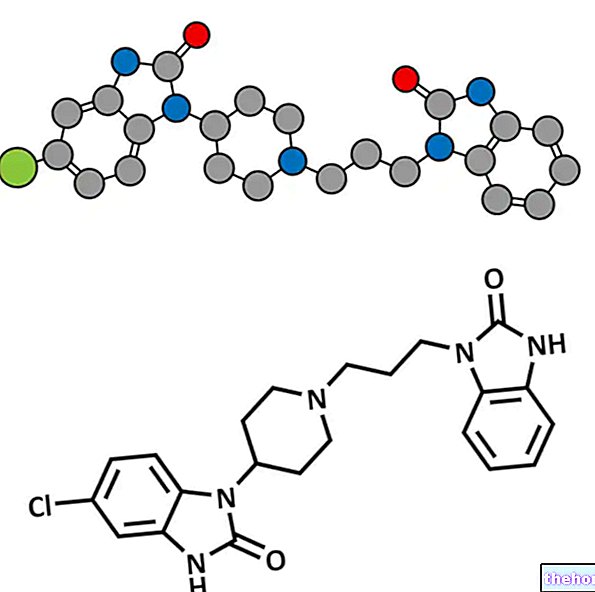
What is Incivo - telaprevir?
Incivo is a medicine that contains the active substance telaprevir. It is available in tablet form (375 mg).
What is Incivo used for?
Incivo is used to treat chronic (long-term) hepatitis C (a liver disease due to hepatitis C virus infection) in combination with two other medicines, peginterferon alfa and ribavirin.
The medicine is used in adult patients with compensated liver disease (when the liver is damaged but still functioning regularly), including cirrhosis (scarring of the liver), who have never been treated before or who have previously been treated with interferon alpha.
The medicine can only be obtained with a prescription.
How is Incivo used - telaprevir?
Treatment with Incivo should be initiated and monitored by a physician experienced in the treatment of chronic hepatitis C infections.
Administration involves taking two tablets of Incivo, swallowed whole every eight hours with food for a period of 12 weeks. Treatment with ribavirin and peginterferon alfa will last longer depending on whether the patient has been previously treated and the results of tests carried out during treatment with Incivo.
How does Incivo - telaprevir work?
The active substance in Incivo, telaprevir, is a protease inhibitor. It blocks the action of an enzyme in the hepatitis C virus called the NS3-4A protease, which is essential for its life cycle. This prevents the hepatitis C virus from replicating in the body's infected host cells. If Incivo is combined with peginterferon alfa and ribavirin (the current standard treatment for hepatitis C), the chance of shedding the virus is increased.
How has Incivo - telaprevir been studied?
The effects of Incivo were first tested in experimental models before being studied in humans.
Incivo has been studied in three main studies involving patients with hepatitis C. The first study involved 1,095 patients who had not previously been treated and the second study involved 663 patients who had already been treated with peginterferon alfa and ribavirin but were found to be still infected. Both studies compared Incivo with placebo (a dummy treatment) added to a course of peginterferon alfa and ribavirin. A third study compared the effects of administering peginterferon alfa and ribavirin over different time periods (six months or one year) in conjunction with three-month treatment with Incivo.In all three studies, the main measure of effectiveness was the number of patients whose blood tests showed no signs of the hepatitis C virus six months after the end of treatment.
What benefit has Incivo - telaprevir shown during the studies?
In the first study, where Incivo was administered for three months, 75% of the patients tested negative for hepatitis C compared with 44% of the patients who took placebo. In the second study, 88% of the patients who were was treated with Incivo for three months tested negative for hepatitis C compared to 24% of patients taking placebo. The third study found that in patients treated with Incivo, administration of peginterferon alfa and ribavirin for six months was effective as much as the administration of the latter drugs for a year, since 92% of the patients who had taken them for six months were negative for hepatitis C compared to 88% of the patients who had taken them for one year.
What is the risk associated with Incivo - telaprevir?
The most common side effects with Incivo (seen in more than 1 in 10 patients) were anemia (low number of red blood cells), nausea, diarrhea, vomiting, haemorrhoids, proctalgia (anal pain), itching and rash. For the full list of side effects reported with Incivo, see the package leaflet.
Incivo must not be used in people who may be hypersensitive (allergic) to telaprevir or any of the other ingredients. Incivo must not be given in combination with several other medicines, including those that are affected by or affect the CYP3A gene and class Ia or III antiarrhythmics. For the full list of restrictions, see the package leaflet.
Why has Incivo - telaprevir been approved?
The CHMP considered that the addition of Incivo to standard treatment represents an important advance in the treatment of the more common type of hepatitis C virus. The Committee noted that in previously untreated patients and in those who had already been treated, Adding Incivo to standard treatment considerably increased the number of those who showed no signs of infection after six months. Furthermore, treatment could be shortened for many patients and the benefits could be seen in different types of patients with different grades. of liver damage.
The Committee noted that the main risks identified were severe skin rash and the potential for the virus to develop resistance to the drug, but considered these risks to be manageable. The CHMP therefore concluded that the benefits of Incivo outweigh its risks. and recommended the granting of a marketing authorization for the medicine.
What measures are being taken to ensure the safe use of Incivo - telaprevir
The company that markets Incivo will provide all prescribing physicians with educational material containing important safety information regarding the main risks associated with Incivo, in particular the risk of rash and severe skin reactions.
More information about Incivo - telaprevir
On 19 September 2011, the European Commission issued a "marketing authorization" for Incivo, valid throughout the European Union.
For more information about Incivo therapy, read the package leaflet (included with the EPAR) or contact your doctor or pharmacist.
Last update of this summary: 08-2011.
The information on Incivo - telaprevir published on this page may be out of date or incomplete. For a correct use of this information, see the Disclaimer and useful information page.




























